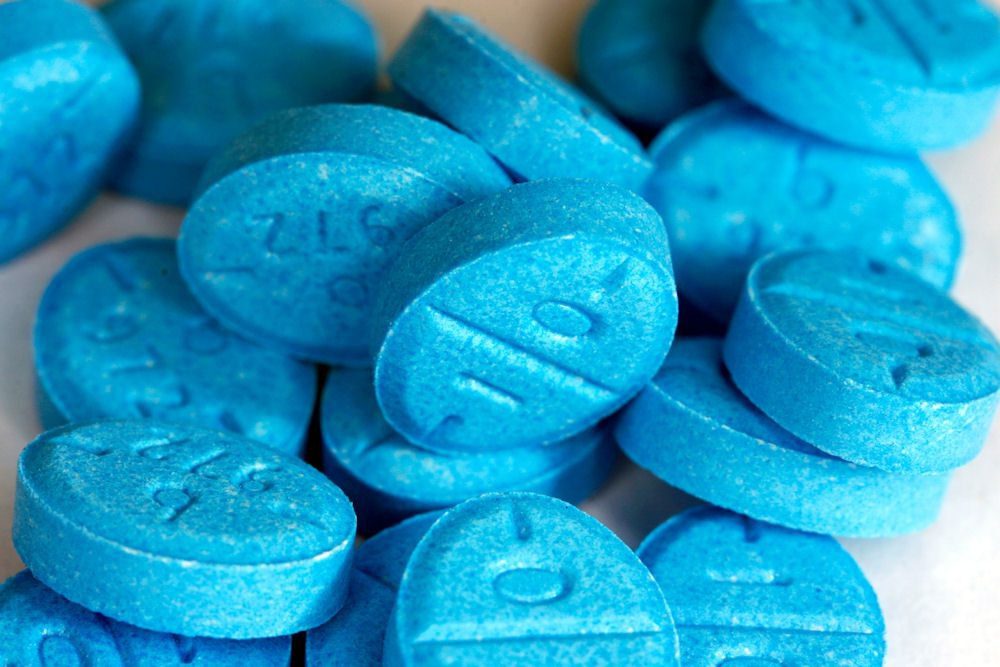Methadone Detox in Illinois
Methadone is a synthetic opioid medication that may be prescribed for moderate to severe pain management (usually only prescribed when other medications aren’t effective) or detoxification to assist in recovery from opioid use disorder (OUD).
Although there is a belief that methadone is not as dangerous or addictive as illegal opioid drugs, it still has all the common effects related to them. Addiction to methadone is possible, and it’s a serious physical health condition that needs to be treated that way. If you have become addicted to methadone, there is a professional detox facility in Northern Illinois that can help you, regardless of how you began using methadone.
Jump to Section
What is Methadone?
As mentioned, methadone is a synthetic opioid agonist medication. This means that it attaches to opioid receptors and can reverse and block the effects of other opioids such as:
- Heroin
- Morphine
- Oxycodone
- Hydrocodone
- Fentanyl
Methadone is meant to help people improve their health and recover from chronic pain or addiction to opioids. Although it’s used as a form of medication-assisted treatment, substance abuse, addiction, and opioid withdrawal can still develop.
Why is it Used in the Treatment of OUD?
Patients who receive methadone can experience euphoric effects and feelings of relaxation, though the effects are weaker than with drugs such as fentanyl or heroin. Still, despite the weakness, there is a lot of evidence that methadone can cause dependency, addiction, or make substance use disorders worse.
People who take methadone as it’s prescribed may:
- decrease the physical symptoms of opioid abuse (like preventing the symptoms of opioid withdrawal).
- have a lower likelihood of fatal drug overdoses.
- be less likely to abuse or misuse it.
How Do People Get Addicted to Methadone?
 During the addiction process, your central nervous system becomes affected, causing the chemical system in the brain to become unbalanced. In an attempt to regain normal function, your brain craves methadone.
During the addiction process, your central nervous system becomes affected, causing the chemical system in the brain to become unbalanced. In an attempt to regain normal function, your brain craves methadone.
The unpleasant side effects of methadone addiction can also cause a blocking of the brain’s “pleasure sensors” instead of causing euphoria. Drug abusers who take heroin or other opiates are more vulnerable to methadone addiction because of their history of substance abuse. Individuals who are struggling with dependency have a health condition that causes cravings for methadone.
If they are denied their prescription, they may look for other ways of obtaining the drug or other opioids such as heroin or codeine. If you or your loved one experiences opioid cravings or withdrawal symptoms while trying to avoid methadone or illicit drugs, or you feel like you need to increase the dosage to get the same effects, it’s important to get methadone addiction treatment immediately.
Signs of Methadone Addiction
The National Institute on Drug Abuse (NIDA) conducted a study that revealed that opioid painkillers were responsible for half of all cases that were treated in emergency rooms in the US in 2012. It may be difficult to process drug addiction at first because many users are not aware that they have a problem until it’s too late.
It’s common for people to realize that they have a physical dependence or addiction only when they miss doses or try to stop using the drug. At this point, they may begin to experience the effects of addiction, including withdrawal, and believe that they have to continue to use the drug to be able to function. Without access to detox or addiction therapy, this can have harmful effects on any preexisting mental health conditions or cause mental disorders.
Signs of methadone addiction include:
- Taking more doses than you should, for a longer period than is prescribed.
- Having problems or withdrawals when trying to get off the drug. This may include muscle aches, bone pain, fever, vomiting, and/or behavioral symptoms caused by depression.
- Spending a lot of time getting the drug and using it
- Spending a lot of time psychologically or physically recovering from drug use
- Bringing financial problems on yourself due to money spent on the substance
- Cravings for the drug
- Not feeling like yourself when not using
- Failure to meet relationship, work, and school standards because of drug use
- Prioritizing drug use over family time or other commitments
- Continuing to use it regardless of a decline in health
- Developing a tolerance of the drug (needing more to experience the same effects)
Long-term Health Risks


- Weight gain
- Mood swings
- Cardiovascular issues
- Liver, nerve, and brain damage
- Respiratory depression (low breathing rate) and other breathing problems
- Higher risk of overdose, dependency, and addiction
- Inability to concentrate and shorter attention span
- Changes in sexual function and menstruation
Some other symptoms of opioid use include:
- Chest pain
- Dry mouth
- Drowsiness
- Narrowed pupils
- Clammy, blue skin
- Shallow or slow breathing
- Loss of consciousness or coma
- Nausea and vomiting
- Low blood pressure
- Slowed heartbeat
- Brain damage
- Constipation
- Runny nose
- Muscle pain
- Confusion
- Hives
What is Methadone Withdrawal Like?
If you stop taking methadone after using it for a while, you may have withdrawal symptoms. Getting through withdrawal from methadone can be a painful experience. And withdrawal from any opioid drug on your own can be very difficult and dangerous. Medically-assisted treatment usually involves medication, counseling, and support. Our MAT program in Illinois is highly effective when it comes to helping people deal with withdrawal.
Withdrawal may take place in several settings such as:
- At home. You’ll need medicines and a strong support system. This approach is difficult, and withdrawal should be done very slowly.
- Special detox centers in Illinois set up to help people through withdrawal
- In a regular hospital if the symptoms are extreme
Symptoms and Timeline
The symptoms of methadone withdrawal (sometimes referred to as methadone detox), usually start to appear about 24 to 36 hours after the last dose. In a professional facility, the process is supervised by medical personnel. The duration of the withdrawal process varies from person to person. However, it may last from 2 to 3 weeks to up to 6 months.
You may be going through withdrawal if you experience these symptoms within the first 30 hours after you stop using methadone:
- Restlessness
- Muscle aches
- Increased tearing
- Sleep issues
- Runny nose
- Tiredness
- Sweating
- Yawning
- Anxiety
At first, withdrawal symptoms may seem like the flu. However, unlike the flu, withdrawal symptoms can remain severe for several days. Some symptoms peak after about three days.
- Muscle pain and aches
- Severe nausea
- Vomiting
- Diarrhea
- Goosebumps
- Cramps
- Depression
- Cravings for the drug
It is likely that these symptoms will be at their worst during the first week. Nevertheless, some symptoms can last longer than a week.
- Anxiety
- Low energy levels
- Sleep problems
- Depression
Because of the serious discomfort of withdrawal, the risk of returning to the use of other opiates increases. That’s why some people consider remaining on methadone treatment but at lower doses. After becoming stable at a lower level, another attempt at tapering off can be started.
Outpatient Detox
Individuals receiving outpatient detoxification treatment are typically expected to travel to a hospital or other treatment facility daily for treatment sessions. They may be scheduled during the day or evening hours depending on the program. Whether you enter an outpatient or inpatient program there will be an initial assessment that includes:
- Intake history
- Physical exam
- Lab test orders
- The beginning of detox treatment
This usually takes 1 to 2 hours on the first day of outpatient detox treatment. The following sessions may take from 15 to 30 minutes. The program length may be from 3 to 14 days. In one study, the average length of treatment for outpatients was 6.5 days, which is shorter than the average duration for inpatient detox (9 days). If the program is linked with a day hospital program, sessions may last several hours per day. Depending on the severity of the withdrawal symptoms, individuals may be prescribed medications that treat the symptoms for mild or moderate withdrawal or an opioid medication for severe withdrawal symptoms.
What are the Advantages of Outpatient Detox?
For people with mild-to-moderate withdrawal symptoms, outpatient detox is as safe and effective as inpatient detox but is less expensive and less time-consuming. Additionally, people who enroll in long-term outpatient rehab treatment after outpatient detox benefit by attending the same treatment facility for both stages of treatment.
Also, most outpatients experience more social support than inpatients. The exception is outpatients who live in unstable family circumstances or work situations. Outpatients are able to continue to function relatively normally and maintain their employment along with their social and family relationships. Compared to people in inpatient treatment, outpatients:
- Have more freedom
- Can continue working
- Can maintain day-to-day activities
- Have lower treatment costs
Disadvantages of Outpatient Detoxification
Among the disadvantages of outpatient detox are:
- The increased risk of relapse
- Ease of not keeping detoxification appointments
- Higher risk of failing to complete detox
Outpatient detox is also not advantageous for people at risk for life-threatening complications of withdrawal such as:
- Serious medical conditions
- Individuals who are suicidal or homicidal
- People who wouldn’t be able to travel daily to the treatment center
Inpatient Detoxification


People who are not good candidates for outpatient detoxification find that inpatient treatment is more appropriate. Inpatient drug treatment facilities offer the advantages of:
- Constant medical care
- Prevention of access to drugs
- Supervision of professional staff
- Availability of treatment in case of complications
- Separation from the drug-using environment
Disadvantages of Inpatient Detoxification
The main disadvantages of inpatient detox are:
- The relatively higher cost compared to outpatient treatment
- Inpatient care may excuse people from personal responsibilities
- It may encourage dependence on treatment facility staff
Treatments Used in Methadone Detox
Your medical professional can provide you with treatments and medication to ease withdrawal symptoms. This makes it more likely that you’ll make a full recovery.
Because of the risk of methadone misuse and overdose, methadone therapy is only available for people who are enrolled in a government-approved treatment program. A physician will monitor your intake of methadone and your response to make sure that the withdrawal process is safe. The therapy is continued until your body no longer needs the methadone
Group support can be critical for long-term recovery. At times, you might not get a lot of support from your family and friends because they may not be able to understand. Reaching out to other recovering methadone users can help you find other people also going through what you are and can understand and help you stay on track with your recovery.
Once you are not taking methadone anymore, it’s vital that you don’t return to opiates or opioids again. People in recovery from methadone or other opioid abuse have a higher risk of death than the general public. For additional support in staying away from these drugs, 12-Step groups like Narcotics Anonymous can help.
Safe Detox Treatment in Northern Illinois


Additionally, we have intervention services available in case you have a loved one who needs addiction treatment but hasn’t come to realize it yet. Our professional interventionists will help you stage an effective intervention to help get your loved one on the right path. It is never too soon to get help, for anyone.
From detox to sober living and aftercare, we can offer you a comprehensive treatment regimen. You’ll enter at the appropriate level of care and we will be with you every step of the way. Everything you need is right here. Contact us today.


Licensed Physician and Surgeon
Dr. Beth Dunlap, a board-certified addiction medicine and family medicine physician, and is the medical director at Northern Illinois Recovery Center. She is responsible for overseeing all the integrated medical services at both campuses. Beth completed medical school, residency, and fellowship at Northwestern University, where she continues to serve on the faculty as a member of the Department of Family and Community Medicine. She has extensive experience in addiction medicine at all levels of care, and her clinical interests include integrated primary care and addiction medicine, harm reduction, and medication-assisted treatment.













